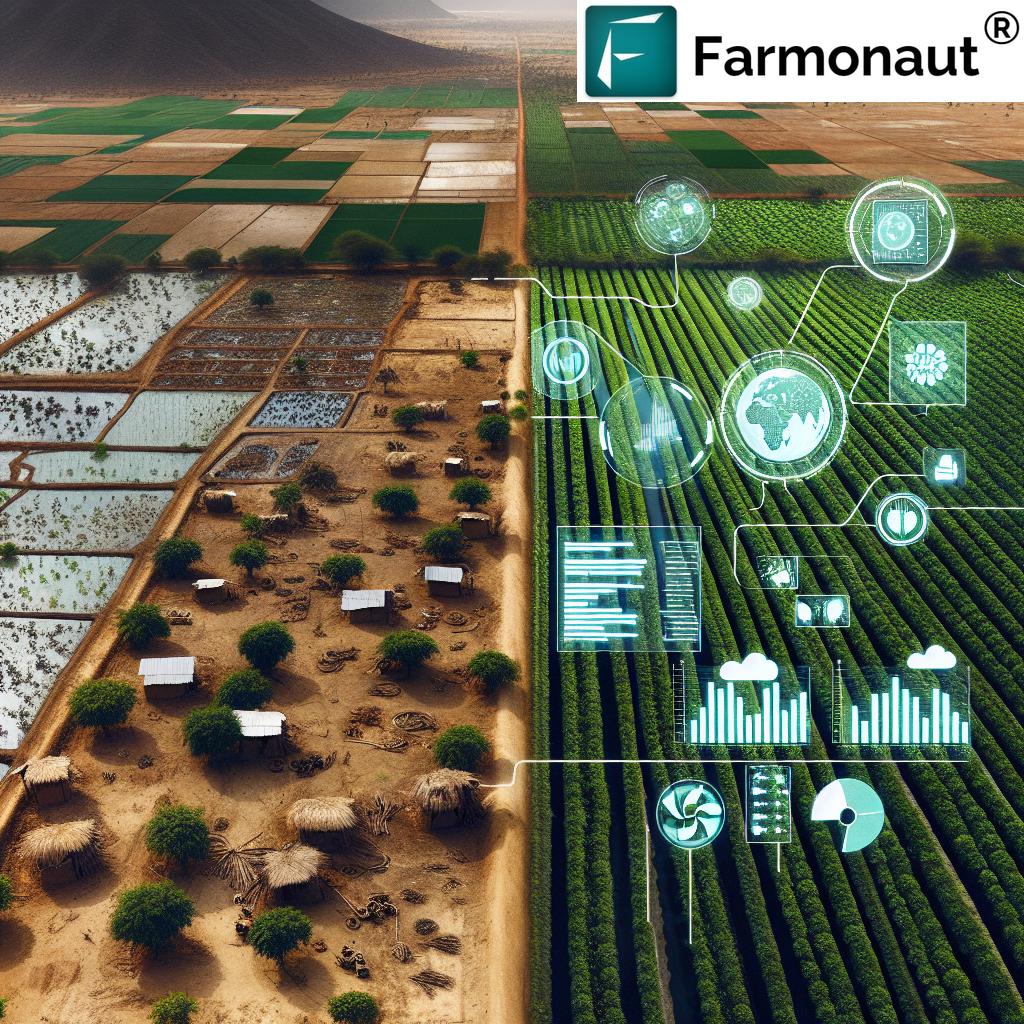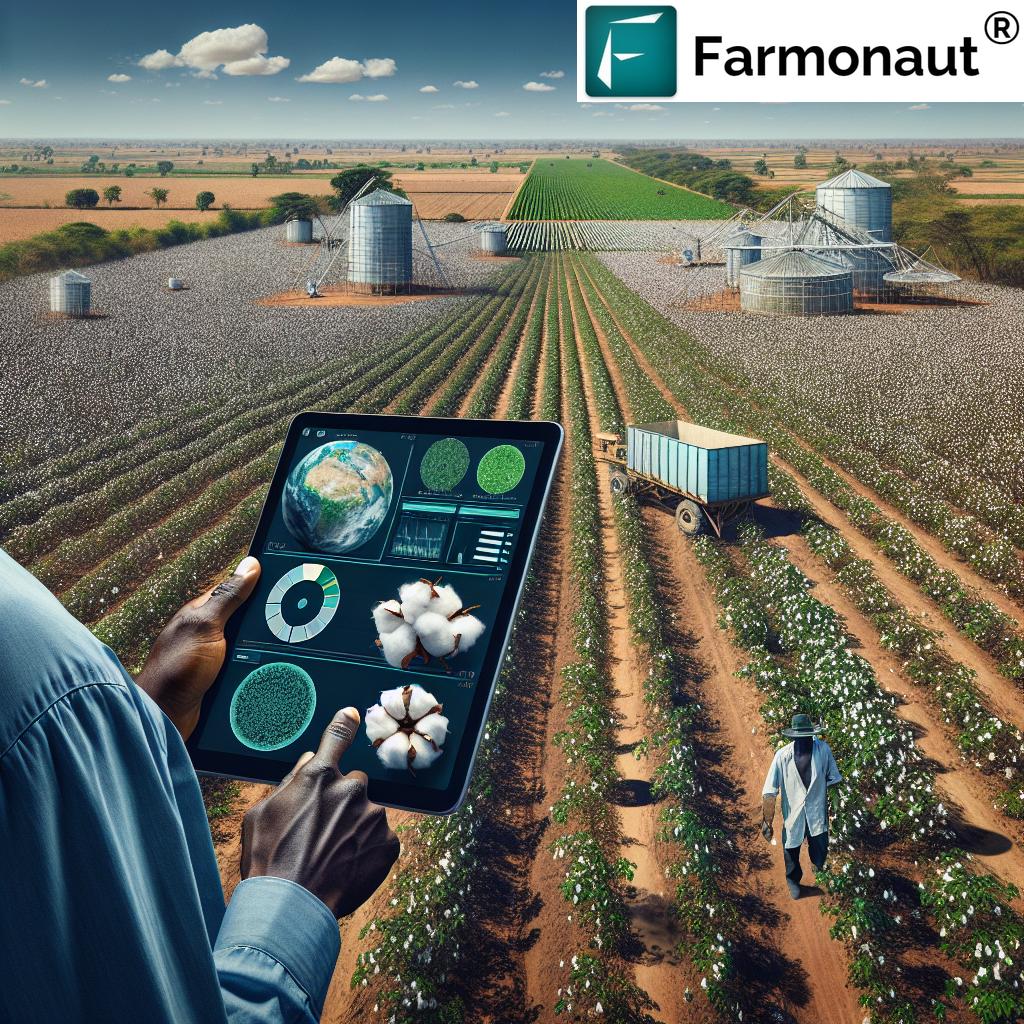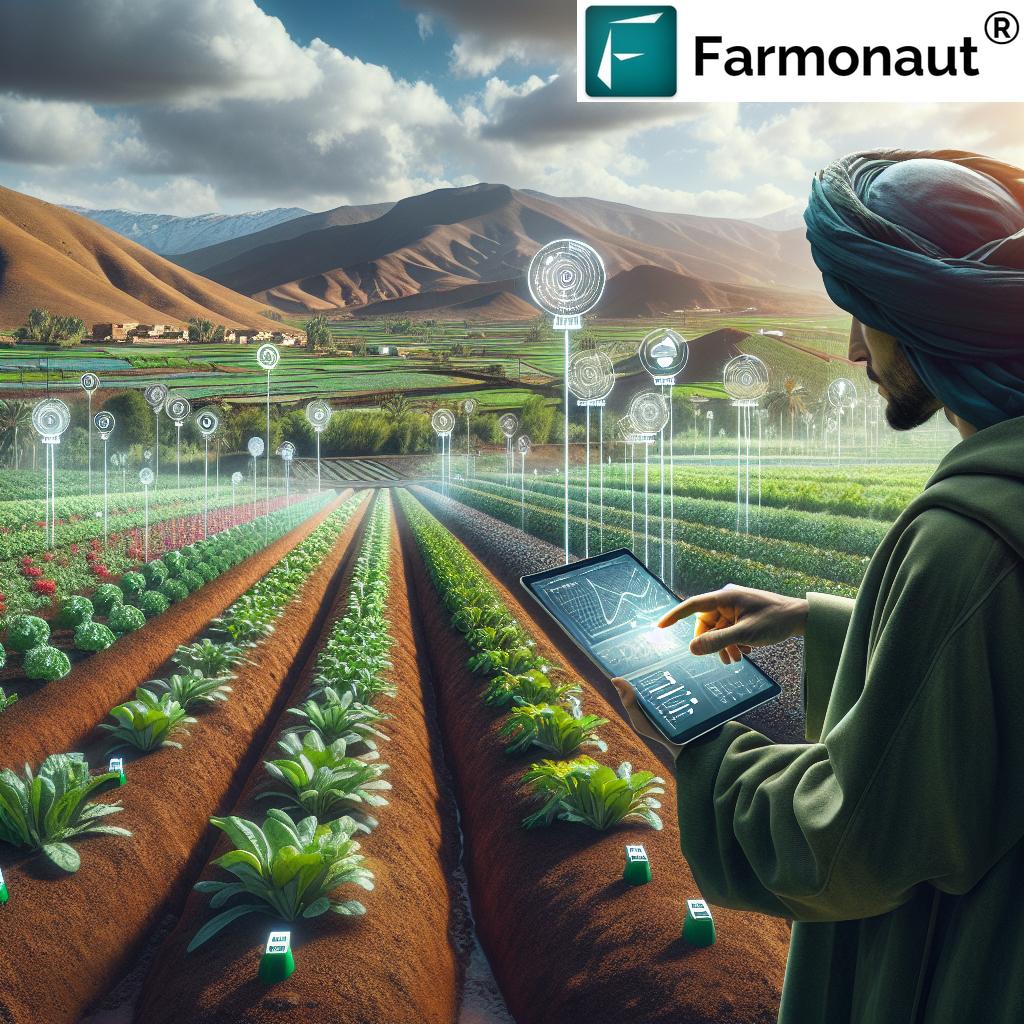Unlocking Agricultural Potential: Vietnam-Algeria Cooperation Boosts Date Exports and Halal Food Processing in Biskra Province
“Algeria’s Biskra province produces over 40% of the country’s dates, with annual exports exceeding $100 million.”

In the ever-evolving landscape of global agriculture, we’re witnessing a remarkable partnership unfold between Vietnam and Algeria. This collaboration is set to revolutionize the date export industry and foster high-tech agriculture processing, particularly in Algeria’s Biskra province. As we delve into this exciting development, we’ll explore how this cooperation is shaping the future of agricultural commerce between Southeast Asia and North Africa.
The Emerging Vietnam-Algeria Agricultural Alliance
The Vietnam-Algeria agricultural cooperation is a testament to the power of international partnerships in driving economic growth and innovation. This collaboration focuses on several key areas:
- Enhancing date export capabilities
- Developing Halal-certified food processing
- Implementing high-tech agricultural practices
- Improving cold chain logistics
- Exploring trans-Saharan trade routes
As we explore these aspects, it’s crucial to understand the unique challenges and opportunities presented by Algeria’s Sahara region, particularly in Biskra province.
Biskra Province: Algeria’s Date Palm Oasis
Biskra province, often referred to as the “Gateway to the Sahara,” is a pivotal region in Algeria’s agricultural landscape. Known for its vast date palm plantations, Biskra contributes significantly to Algeria’s date production and export industry. The province’s unique climate and soil conditions make it ideal for cultivating high-quality dates, a fruit that has been a staple of Algerian culture and economy for centuries.
With the introduction of Vietnamese expertise in tropical fruit cultivation and export, Biskra’s date industry is poised for unprecedented growth. This collaboration aims to enhance production techniques, improve quality standards, and expand market reach for Algerian dates.
Revolutionizing the Date Export Industry
The date export industry is a cornerstone of Algeria’s agricultural economy, and the partnership with Vietnam is set to elevate it to new heights. Here’s how this cooperation is transforming the sector:
- Enhanced Production Techniques: Vietnamese agricultural experts are introducing advanced farming methods to increase yield and quality of date palms.
- Quality Control Measures: Implementing rigorous quality standards to meet international market demands.
- Market Expansion: Leveraging Vietnam’s experience in fruit exports to access new markets in Southeast Asia and beyond.
- Value-Added Products: Developing processed date products to diversify export offerings and increase value.
This collaboration is not just about boosting exports; it’s about creating a sustainable and resilient date industry that can withstand global market fluctuations and climate challenges.
Halal Food Processing: A New Frontier
One of the most exciting aspects of the Vietnam-Algeria cooperation is the focus on Halal food processing. This initiative opens up a world of opportunities for both countries:
- Expanding Halal Certification: Implementing Vietnamese expertise in food processing to obtain Halal certification for a wider range of Algerian products.
- Market Access: Tapping into the growing global Halal food market, estimated to be worth trillions of dollars.
- Technology Transfer: Introducing advanced processing technologies to ensure product quality and shelf life.
- Job Creation: Establishing new processing facilities in Biskra province, creating employment opportunities for locals.
The development of a robust Halal food processing sector in Biskra not only diversifies Algeria’s export portfolio but also positions the country as a key player in the global Halal food market.
“Vietnam-Algeria cooperation aims to increase Halal-certified food exports by 30% within the next 5 years.”
High-Tech Agriculture: Bridging Tradition and Innovation
The introduction of high-tech agricultural practices is a game-changer for Biskra’s farming community. Vietnam’s experience in modernizing its agricultural sector is proving invaluable in this collaboration. Key aspects include:
- Precision Farming: Implementing satellite-based crop monitoring and management systems.
- Smart Irrigation: Introducing water-efficient irrigation techniques crucial for desert agriculture.
- Pest Management: Utilizing advanced pest control methods to protect date palm plantations.
- Data-Driven Decision Making: Employing agricultural data analytics for optimal resource allocation and yield prediction.
These technological advancements are not just improving productivity; they’re also ensuring the sustainability of Biskra’s agricultural sector in the face of climate change and water scarcity.

Cold Chain Logistics: Preserving Quality from Farm to Table
One of the most significant challenges in date exports is maintaining product quality during transportation. The Vietnam-Algeria partnership is addressing this through improvements in cold chain logistics:
- Temperature-Controlled Storage: Implementing state-of-the-art cold storage facilities in Biskra.
- Refrigerated Transportation: Introducing a fleet of refrigerated vehicles for domestic and international transport.
- Quality Monitoring Systems: Implementing IoT-based quality monitoring throughout the supply chain.
- Training Programs: Educating local workers on best practices in cold chain management.
These improvements ensure that Algerian dates and processed foods reach international markets in prime condition, enhancing their value and reputation.
Exploring Trans-Saharan Trade Routes
The revival of trans-Saharan trade routes is an exciting prospect of this cooperation. These ancient pathways, once vital for commerce across North Africa, are being reimagined for modern trade:
- Infrastructure Development: Upgrading road and rail networks to facilitate smoother transportation.
- Trade Hubs: Establishing strategic trade centers along the routes to support commerce.
- Digital Integration: Implementing digital tracking and logistics management systems for efficient trade operations.
- Cultural Exchange: Promoting cultural and economic ties between Saharan countries.
This initiative not only boosts trade but also fosters regional cooperation and development across the Sahara.
Overcoming Challenges in Agricultural Trade
While the Vietnam-Algeria cooperation brings immense opportunities, it also faces several challenges:
- Tariff Barriers: Navigating complex tariff structures that can impede agricultural trade.
- Payment Systems: Developing efficient cross-border payment mechanisms to facilitate smoother transactions.
- Investment Hurdles: Addressing regulatory and bureaucratic obstacles to foreign investment in the agricultural sector.
- Cultural Differences: Bridging cultural gaps to ensure effective communication and collaboration.
Both governments are actively working to address these challenges through policy reforms and diplomatic efforts.
Government Initiatives Promoting Development
The success of this agricultural cooperation heavily relies on supportive government policies from both Vietnam and Algeria. Key initiatives include:
- Investment Incentives: Offering tax breaks and subsidies for agricultural investments in Biskra province.
- Research Funding: Allocating resources for joint research projects in agriculture and food processing.
- Skill Development Programs: Implementing training programs to upskill local farmers and food processing workers.
- Trade Agreements: Negotiating favorable trade terms to facilitate agricultural exports between the two countries.
These government-led efforts are crucial in creating an enabling environment for the success of this agricultural partnership.
Local-Level Cooperation in High-Tech Agricultural Product Processing
The Vietnam-Algeria cooperation extends beyond national-level agreements to foster local partnerships in Biskra province. This grassroots approach includes:
- Technology Transfer Workshops: Organizing hands-on training sessions for local farmers and processors.
- Joint Ventures: Encouraging partnerships between Vietnamese and Algerian firms in food processing.
- Community Engagement: Involving local communities in decision-making processes for agricultural development projects.
- Demonstration Farms: Establishing model farms to showcase high-tech agricultural practices.
These local-level initiatives ensure that the benefits of this cooperation reach the heart of Biskra’s agricultural community.
The Role of Technology in Agricultural Advancement
Technology plays a pivotal role in modernizing Biskra’s agricultural sector. Here’s how innovative solutions are being implemented:
- Satellite-Based Crop Monitoring: Utilizing remote sensing technology for real-time crop health assessment and yield prediction.
- AI-Powered Advisory Systems: Implementing artificial intelligence to provide personalized farming advice to local farmers.
- Blockchain for Traceability: Ensuring transparency and authenticity in the supply chain of agricultural products.
- Drone Technology: Employing drones for precision agriculture, including crop spraying and monitoring.
These technological advancements are not just improving productivity but also ensuring sustainable farming practices in Biskra’s challenging desert environment.
For farmers and agribusinesses looking to leverage these technologies, Farmonaut’s web application offers cutting-edge solutions for precision agriculture and farm management.
Economic Impact on Biskra Province
The Vietnam-Algeria agricultural cooperation is set to have a profound economic impact on Biskra province:
- Job Creation: New opportunities in agriculture, food processing, and related industries.
- Income Growth: Increased earnings for farmers through improved productivity and market access.
- Foreign Investment: Attracting international capital to the region’s agricultural sector.
- Infrastructure Development: Improvements in transportation, storage, and processing facilities.
This economic boost is not just transforming Biskra’s agricultural landscape but also enhancing the overall quality of life for its residents.
Environmental Considerations in Agricultural Development
As we embrace agricultural advancement, it’s crucial to consider its environmental impact. The Vietnam-Algeria cooperation places a strong emphasis on sustainable practices:
- Water Conservation: Implementing efficient irrigation systems to preserve Biskra’s scarce water resources.
- Soil Health Management: Promoting practices that maintain and improve soil quality in desert conditions.
- Biodiversity Protection: Ensuring agricultural expansion doesn’t come at the cost of local ecosystems.
- Renewable Energy Integration: Incorporating solar power in farming operations to reduce carbon footprint.
These environmental considerations ensure that the agricultural development in Biskra is sustainable and harmonious with the local ecosystem.
The Future of Vietnam-Algeria Agricultural Cooperation
As we look to the future, the Vietnam-Algeria agricultural partnership holds immense promise:
- Expanded Product Range: Diversifying beyond dates to other high-value crops suitable for Biskra’s climate.
- Advanced Food Processing: Developing more sophisticated Halal-certified food products for global markets.
- Agricultural Research Hub: Establishing Biskra as a center for desert agriculture research and innovation.
- Digital Agriculture: Further integration of digital technologies in farming and supply chain management.
This cooperation is not just about immediate gains but about building a sustainable, innovative agricultural sector that can thrive in the face of future challenges.
Conclusion: A New Chapter in Agricultural Commerce
The Vietnam-Algeria agricultural cooperation, particularly its focus on Biskra province, marks a significant milestone in the evolution of agricultural commerce between Southeast Asia and North Africa. By combining Vietnam’s expertise in tropical agriculture and export with Algeria’s rich tradition of date cultivation, this partnership is unlocking new potentials and creating a model for international agricultural cooperation.
As we’ve explored, from revolutionizing the date export industry to pioneering Halal food processing and embracing high-tech agricultural practices, this collaboration is comprehensive and far-reaching. It addresses critical challenges like cold chain logistics and explores exciting opportunities like reviving trans-Saharan trade routes.
The economic and social impacts on Biskra province are profound, promising job creation, income growth, and overall development. Moreover, the focus on sustainable practices ensures that this agricultural boom doesn’t come at the cost of environmental degradation.
For those interested in leveraging technology for agricultural advancement, Farmonaut’s mobile applications offer innovative solutions for farm management and crop monitoring.
As this partnership continues to evolve, it sets a precedent for future international collaborations in agriculture. It demonstrates how combining expertise, technology, and local knowledge can lead to mutually beneficial outcomes, fostering not just economic growth but also cultural understanding and global cooperation.
The Vietnam-Algeria agricultural cooperation in Biskra province is more than just a business venture; it’s a testament to the power of international partnership in addressing global challenges in food security and sustainable development. As we move forward, this collaboration will undoubtedly play a crucial role in shaping the future of agriculture in both regions and beyond.
Table: Vietnam-Algeria Agricultural Cooperation: Key Sectors and Impacts
| Sector | Vietnamese Contribution | Algerian Contribution | Expected Impact |
|---|---|---|---|
| Date Export Industry | Expertise in tropical fruit exports, marketing strategies | Date production capabilities, local knowledge | 30% increase in date export volume and value |
| Halal Food Processing | Advanced food processing technology, certification expertise | Raw materials, local workforce, market access | Establishment of new Halal-certified product lines |
| High-Tech Agriculture | Precision farming techniques, AI-driven advisory systems | Land resources, traditional farming knowledge | 20% increase in agricultural productivity |
| Cold Chain Logistics | Modern refrigeration technology, supply chain management | Transportation infrastructure, local distribution networks | Reduction in post-harvest losses by 15% |
| Trans-Saharan Trade | International trade experience, market research | Geographical advantage, historical trade routes | Opening of new markets in Sub-Saharan Africa |
FAQ Section
- Q: What is the main focus of the Vietnam-Algeria agricultural cooperation?
A: The cooperation focuses on enhancing date exports, developing Halal food processing, implementing high-tech agriculture, improving cold chain logistics, and exploring trans-Saharan trade routes. - Q: How is this cooperation benefiting Biskra province?
A: It’s creating job opportunities, increasing farmers’ income, attracting foreign investment, and improving agricultural infrastructure in the region. - Q: What role does technology play in this partnership?
A: Technology is crucial, with the implementation of satellite-based crop monitoring, AI-powered advisory systems, blockchain for traceability, and drone technology for precision agriculture. - Q: How is the partnership addressing environmental concerns?
A: The cooperation emphasizes water conservation, soil health management, biodiversity protection, and integration of renewable energy in farming operations. - Q: What are the main challenges faced by this agricultural cooperation?
A: Key challenges include navigating tariff barriers, developing efficient cross-border payment systems, overcoming investment hurdles, and bridging cultural differences.
For farmers and agribusinesses looking to leverage advanced agricultural technologies, Farmonaut’s web and mobile applications offer comprehensive solutions for precision farming and crop management.
Additionally, for developers interested in integrating agricultural data into their own systems, Farmonaut’s API provides access to satellite and weather data. Detailed information can be found in the API Developer Docs.
Explore Farmonaut’s solutions:




















